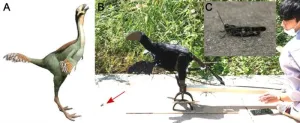(Press-News.org) The American College of Cardiology’s Cardiovascular Summit (CV Summit) will take place on February 1-3 in Washington, DC. Bringing together all members of the CV team, the educational event highlights best practices for creating a more efficient, effective and equitable health care system.
As health care systems continue to evolve, CV teams must be equipped to address these emerging trends and changes in operations, economics and the workforce. This year’s CV Summit will feature an array of educational sessions for clinicians, administrators and executives that encompass a multitude of practice models. Participants will learn how to distinguish between innovative strategies and emerging trends in CV care, assess operational efficiencies to enhance the effectiveness of the CV service line, and adopt customizable approaches that support economic sustainability.
"The Cardiovascular Summit is the ACC’s primary meeting focused solely on the non-clinical business skills of cardiology,” said Howard (Bo) Walpole, MD, MBA, FACC, ACC CV Summit course director. “This is our forum for discussing and teaching everything necessary for running an efficient private or academic practice while improving leadership and organizational skills.”
Some of the exciting live sessions from this year include:
What Will CV Services Look Like in 2030? Two Different Paths to the Future – Harold D. Miller, MS – Thursday, Feb. 1, 2024, at 12:45 p.m. ET
It’s Time to Have a Dedicated CV Medicine Board of Our Own – Cathleen Biga, MSN, RN, FACC; Edward T.A. Fry, MD, MACC – Thursday, Feb. 1, 2024, at 5:20 p.m. ET
AI Potential For CV Care – Ami B. Bhatt, MD, FACC – Friday, Feb. 2, 2024, at 8:10 a.m. ET
Prepping For Ambulatory Procedural CV Care – Gerald G. Blackwell, MD, MBA, FACC; Karen Engelhardt, BS; Joel Porter, JD, MBA; Frederic R. Simmons Jr., CPA Moderator: Charles L. Brown III, MD, FACC – Friday, Feb. 2, 2024, at 3:40 p.m. ET
Evolving Trends in CV Employment – Karen Engelhardt, BS; Kevin Mair, MBA, CMPE; Joel Porter, JD, MBA; Mary Norine Walsh, MD, MACC Moderator: Cathleen Biga, MSN, RN, FACC – Saturday, Feb. 3 at 8:00 a.m. ET
Most of ACC CV Summit 2024 will become part of the ACC Anywhere video library following the conclusion of the course. Learn more at ACC.org/ACCAnywhere.
Abstracts and Posters
The following abstracts are a selection of the posters being presented. All ACC Cardiovascular Summit 2024 abstracts are embargoed until Thursday, February 1, 2024, at 6 a.m. ET.
Real world results of a “CT first” strategy for evaluation of stable chest pain
Optimization of Weekend Ambulatory Services to Reduce Emergency Department Utilization
Do Socioeconomic Disparities Arise Through the Care Pathways for Patients with Aortic Stenosis?
Heart and Vascular: Role Delineation and Ambulatory Clinic Staffing
If you would like to receive embargoed copies of these abstracts or register for media access to the conference, contact ACC Associate Director for Media Relations Katie Glenn at kglenn@acc.org.
The American College of Cardiology (ACC) is the global leader in transforming cardiovascular care and improving heart health for all. As the preeminent source of professional medical education for the entire cardiovascular care team since 1949, ACC credentials cardiovascular professionals in over 140 countries who meet stringent qualifications and leads in the formation of health policy, standards and guidelines. Through its world-renowned family of JACC Journals, NCDR registries, ACC Accreditation Services, global network of Member Sections, CardioSmart patient resources and more, the College is committed to ensuring a world where science, knowledge and innovation optimize patient care and outcomes. Learn more at www.ACC.org or follow @ACCinTouch.
###
END
Aircraft noise is often a nuisance for people living near airports and in flight paths – and, in the worst case, a health hazard: from sleep disorders to cardiovascular diseases. According to a report by the European Environment Agency, around four million people in Europe were exposed to excessive levels of aircraft noise in 2017. New types of aircraft with a blended wing body (BWB), whose fuselage merges seamlessly into the wings – with less air resistance and lower fuel consumption – are seen as a beacon of hope to alleviate this burden. And with lower noise emissions towards the ground if the engines are mounted on top of the fuselage.
Auralization in the lab
Although ...
HOUSTON ― The University of Texas MD Anderson Cancer Center’s Research Highlights showcases the latest breakthroughs in cancer care, research and prevention. These advances are made possible through seamless collaboration between MD Anderson’s world-leading clinicians and scientists, bringing discoveries from the lab to the clinic and back.
Recent developments at MD Anderson include a combination treatment for KRAS G12C-mutant colorectal cancer; using liquid biopsies to classify small-cell lung cancer subtypes; an artificial intelligence model to improve non-small cell lung cancer classification; ...
FOR IMMEDIATE RELEASE
Working with mammalian retinal cells, neuroscientists at Johns Hopkins Medicine have shown that, unlike most light-sensing cells (photoreceptors) in the retina, one special type uses two different pathways at the same time to transmit electrical “vision” signals to the brain. The work also reveals that such photoreceptors, according to the researchers, may have ancient origins on the evolutionary scale.
This and other findings, published Dec 18, in PNAS, “shed scientific as well as literal light” on a decades-long mystery ...
Speaking today at a hearing of the U.S. Senate Special Committee on Aging, Gerontological Society of America members Jennifer Craft Morgan, PhD, FGSA, and Richard J. Mollot, JD, called on lawmakers to enact policies that enable greater state and national oversight of assisted living facilities, and that bolster the workforce and engagement of residents and care partners.
Senators convened the hearing, titled “Assisted Living Facilities: Understanding Long-Term Care Options for Older Adults,” to examine challenges faced by assisted living facility residents. Committee Chair Bob Casey recently sent letters to the CEOs of three ...
Philadelphia, January 25, 2024 – The American College of Radiology® (ACR®), working in close collaboration with four other radiology societies from around the world, have issued a joint statement on the development and use of artificial intelligence (AI) tools in radiology. This groundbreaking joint statement is openly available in ACR’s Journal of the American College of Radiology, published by Elsevier. It explores the potential challenges and ethical and safety concerns related to integrating this new technology into radiology practice.
“Developing, Purchasing, Implementing and Monitoring AI Tools ...
Las Vegas, NV (Jan. 25, 2024) — The Crohn’s & Colitis Foundation® and the American Gastroenterological Association (AGA) are proud to host the annual Crohn’s & Colitis Congress®, taking place on Jan. 25-27, 2024, in Las Vegas. The Crohn’s & Colitis Congress convenes researchers, clinicians, and other professionals involved in the care of patients with inflammatory bowel disease (IBD) to share the latest research breakthroughs and treatment advancements in IBD. During this premier meeting, we’ll review the latest advancements in IBD care that aim to improve the lives of the millions of Americans living with Crohn’s disease ...
All animals need sleep. When humans or animals don’t get enough, it can lead to trouble paying attention, irritability, and other ill effects. And yet, researchers reporting in the journal Current Biology on January 25 have made the surprising discovery that a small Australian marsupial called an antechinus will sacrifice hours of sleep per night to make more time for sex during the mating season.
The researchers say the multi-year study is the first to show direct evidence for this type of sleep restriction in any land-dwelling mammal. It’s a trade-off between sleep and reproduction that they say is likely driven by ...
What are the origins of wings and tails in birds? This is one of the key questions in the evolution of animals. It has long been accepted that their evolution began in feathered dinosaurs. Some of these dinosaurs had feathers on the tails and small wing-like feathers on their forelimbs (arms). These small wing-like structures called ‘proto-wings’ are composed of special feathers known as pennaceous feathers — the stiff feathers found in the wings and tails of birds. The ancient form of these feathers first emerged in dinosaurs during the Jurassic Period, and these dinosaurs, called ...
Small omnivorous and insectivorous dinosaurs may have flapped small, feathered primitive wings to scare prey out of hiding places, according to a study published in Scientific Reports. The authors built a robot dinosaur named Robopteryx to investigate how grasshoppers responded to different potential scaring behaviours, and speculate that the results could help explain why feathered wings evolved before they were capable of flight in some types of dinosaurs.
Although the remains of numerous species of feathered dinosaurs have been discovered, so far only members of one group of dinosaurs known as ...
About The Study: The current approach to vision screening in the U.S. may not adequately provide care to all children. At each stage along the care pathway, children from historically marginalized racial and ethnic groups, low-income households, and non–English language speakers experience worse outcomes—they were less likely to receive screening, more likely to be referred for failed screening, and less likely to establish care with a specialist. High referral rates in these vulnerable groups may suggest higher prevalence of undiagnosed conditions or elevated false-positive results from suboptimal screening strategies.
Authors: Isdin Oke, M.D., M.P.H., ...


